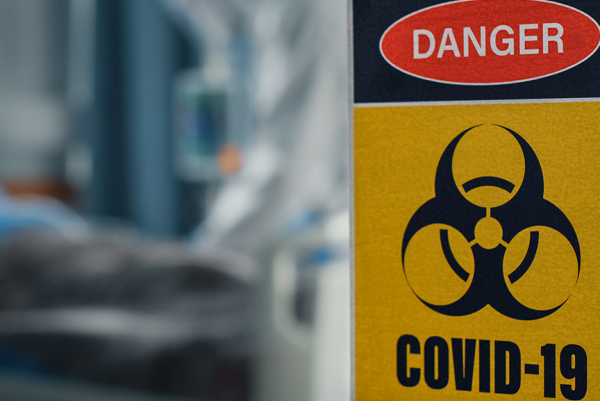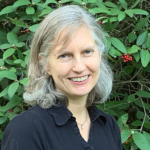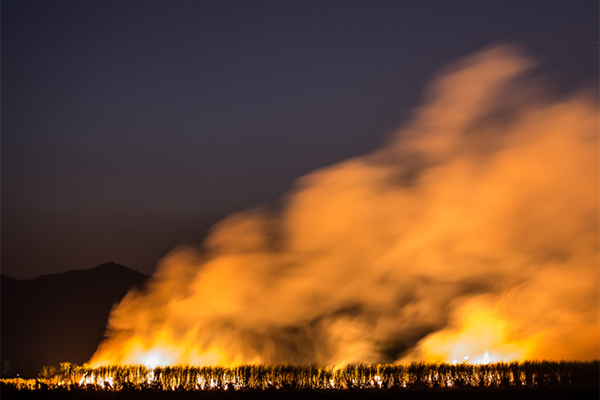
Climate and Health: What can we do today? Session II
How can community-based organizations work effectively with academic institutions to address the effects of climate change in their communities?


Register
Course Information
- Audience: Public Health Professionals
- Format: Recorded Webinar
- Date/Time: Friday, March 18th, 2022
10:00 AM – 11:30 AM EST - Price: Free
- Length: 1.5 hours
- Credential(s) eligible for contact hours: Sponsored by New England Public Health Training Center (NEPHTC), a designated provider of continuing education contact hours (CECH) in health education by the National Commission for Health Education Credentialing, Inc. This program is designated for Certified Health Education Specialists (CHES) and/or Master Certified Health Education Specialists (MCHES) to receive up to 1.5 total Category I continuing education contact hours. Maximum advanced-level continuing education contact hours are 0. Provider ID: 1131137 Event ID: SS1131137_CH2.If you are not seeking a CHES/MCHES contact hours, if you complete the post-test and evaluation, you will receive a Certificate of Completion. The Certificate will include the length of the course.
- Competencies: Leadership and Systems Thinking
- Learning Level: Awareness
- Companion Trainings: Climate and Health: What can we do today? Session I Climate and Health: What can we do today? Session III
- Supplemental materials:None
- Pre-requisites: None
About this Recording
Recent heat waves, wildfires, hurricanes, and other extreme weather events around the world underscore that climate change represents a clear and present danger. Communities everywhere need to better prepare for the extreme weather events we are experiencing today. But how does a community do this?
What you'll learn
At the end of the recording, participants will be able to:
- Describe effective advocacy strategies employed by a community group (GreenRoots in Chelsea/East Boston) to address air quality and other environmental concerns
- List 4 principles to promote climate justice (i.e., address climate adaption for vulnerable people in vulnerable places)
- Describe 4 examples of actions that that US cities can take to address climate change
- Describe the goals, activities, and achievements of the Extreme Heat Resilience Alliance (EHRA)
- Explain research approach and methodologies to understand how housing characteristics are related to health impacts of heat among vulnerable populations
Moderator

Amruta Nori-Sarma
@ASANSREASON
Assistant Professor, Boston University School of Public Health
Marie S. O'Neill
Professor,
Department of Epidemiology,
University of Michigan

Kathy Baughman McLeod
@KBMCLEODFLA
Director, Adrienne Arsht-Rockefeller Foundation Resilience Center, Senior Vice President Atlantic Council
Sharon Harlan
Professor and Department Chair, Department of Health Sciences,
Northeastern University

Roseann Bongiovanni (CAS’99, SPH’01)
@GREENROOTSEJ
Executive Director, GreenRoots
Amruta Nori-Sarma is an Assistant Professor in the Environmental Health Department at Boston University School of Public Health, where she studies the relationship between environmental exposures associated with climate change and health outcomes in vulnerable communities. Her previous work has examined the impact of heat waves and air pollution on health in vulnerable communities in India, South Korea, and across the US. Her current research aims to understand the impacts of interrelated extreme weather events on mental health across the US utilizing large claims datasets. She also has an interest in evaluating the success of policies put in place to reduce the health impacts of climate change.
Subject Matter Experts
Marie O’Neill (she/her/hers) has a B.A. from Brown University, an MS in Environmental Health Sciences from Harvard University, and a PhD in Epidemiology from University of North Carolina at Chapel Hill. She has worked for the U.S. Environmental Protection Agency, the Pan American Health Organization, and in Mexico at the National Institute of Public Health and the National Center for Environmental Health as a Fulbright Scholar. Her research interests include health effects of air pollution, temperature extremes and climate change (mortality, asthma, hospital admissions, birth outcomes and cardiovascular endpoints); environmental exposure assessment; and socio-economic influences on health. She served on the Federal Advisory Committee to the third National Climate Assessment. She is a Professor in the Departments of Epidemiology and Environmental Health Sciences at University of Michigan School of Public Health and serves as Faculty Co-Lead for Diversity Equity and Inclusion at the School. She has been involved in several Federally funded research projects that address social disparities in climate effects on health, including a community-based participatory research project based in Detroit called Climate Hazards, Housing and Health.
Kathy Baughman McLeod leads the Center’s global strategy to reach one billion people worldwide with climate resilience solutions by 2030, with a special focus on society’s most vulnerable. She also chairs the Extreme Heat Resilience Alliance (EHRA), a global alliance of 40+ government officials, disaster relief organizations, climate scientists, public health and medical experts, businesses, and nonprofits, that is delivering early warning, policy, finance, and on-the-ground solutions, including appointing Chief Heat Officers in cities around the world. Additionally, she is spearheading the global push to name and categorize heat waves to save lives and build the culture of awareness and preparedness necessary to combat extreme heat. Kathy is currently a member of the World Economic Forum’s Global Commission on “BiodiverCities by 2030” and a member of the Operating Committee of the Insurance Development Forum (IDF). Under her direction, Arsht-Rock is also a managing partner for the UN’s “Race to Resilience” campaign and Resilience Hub at COP26 — the UN’s flagship climate conference. Formerly, she served as Global Executive for Environmental and Social Risk at Bank of America, Managing Director for Climate Resilience at The Nature Conservancy — where she helped devise the world’s first insurance product on a natural asset; a 40 km stretch of the Mesoamerican reef in Mexico. She also served as Deputy Chief of Staff for the elected Treasurer/CFO of the State of Florida, where she was instrumental in making the Florida Treasury the first in the nation to publicly analyze and disclose the financial risks of climate. Kathy was also an appointed Florida Climate and Energy Commissioner. Baughman McLeod is the recipient of the Fuqua School of Business 2021 “Leader of Consequence” award and was appointed to the US Federal Emergency Management Agency’s National Advisory Council as its first-ever climate specialist in 2021. She holds an MBA from Duke University’s Fuqua School of Business and an MS in Geography from Florida State University.
Dr. Harlan’s research explores the human impacts of climate change that are dependent upon people’s positions in social hierarchies, places in built environments of unequal quality, and policies that improve or impede human adaptive capabilities. Focusing on excessive heat and urban water systems as significant and increasingly critical threats to human health and well-being in cities, she studies social systems and landscapes that produce unequal risks for people in neighborhoods divided by social class and race/ethnicity. She has led multi-institutional, interdisciplinary research and community engagement projects that integrate social theories about the historical production of environmental injustices with data and models from the ecological, geospatial, and health sciences. She is currently conducting research on vulnerability to electrical grid failures and water affordability and accessibility in environmental justice communities across selected cities in the United States. Her coupled natural and human systems research has been supported by grants from the National Science Foundation on urban vulnerability to climate change, sustainability and water, the Central Arizona–Phoenix Long-Term Ecological Research program, and national and metropolitan area surveys on environmental attitudes and behaviors. She has served as an advisor on climate justice and social vulnerability to organizations such as the American Sociological Association, the National Center for Atmospheric Research, the US Environmental Protection Agency, and the Social Science Coordinating Committee of the U.S. Global Climate Change Research Program.
Roseann Bongiovanni has worked for environmental justice for more than 25 years. Her extensive career began as a young organizer with the Chelsea Green Space Committee and included victories defeating the construction of a diesel power plant, and preventing ethanol “bomb” trains from traveling to a Chelsea Creek oil terminal. In 2016, Roseann transitioned this vital work into the independent environmental justice and public health organization, GreenRoots, which played a critical role in the response to COVID-19 in Chelsea and East Boston. Under her leadership, Chelsea was named a Culture of Health Prize Winner in 2017, GreenRoots was selected as a Social Innovator in 2018, and was named a US EPA Merit Award Winner in 2021. Roseann has raised and managed millions of dollars for major projects including Creekside Commons Park; federally funded air emissions reduction work, five urban growing spaces; murals and other public art projects; massive tree plantings; and multiple community parks. Roseann has received numerous awards for her work, including the Alternatives for Community and Environment Founders’ Award in 2001, the National Oceanic and Atmospheric Administration Environmental Hero Award in 2006 and the All Chelsea Award “Adult Resident of the Year” in 2007, an MLK Jr. Community Spirit Award by People’s AME Church in Chelsea in 2020 and a US EPA Merit Award in 2021. She has co-authored several publications. Roseann is a lifelong Chelsea resident, a former City Councilor, and City Council President. She has a Masters of Public Health from Boston University and is the mother of two strong-minded children.
Registration
Select the Enroll Me button below to register for this recording. If you have any trouble accessing the recording, contact support@nephtc.org.
Acknowledgement: This project is/was supported by the Health Resources and Services Administration (HRSA) of the U.S. Department of Health and Human Services (HHS) under grant number UB6HP31685 “Regional Public Health Training Center Program.” This information or content and conclusions are those of the author and should not be construed as the official position or policy of, nor should any endorsements be inferred by HRSA, HHS or the U.S. Government.

